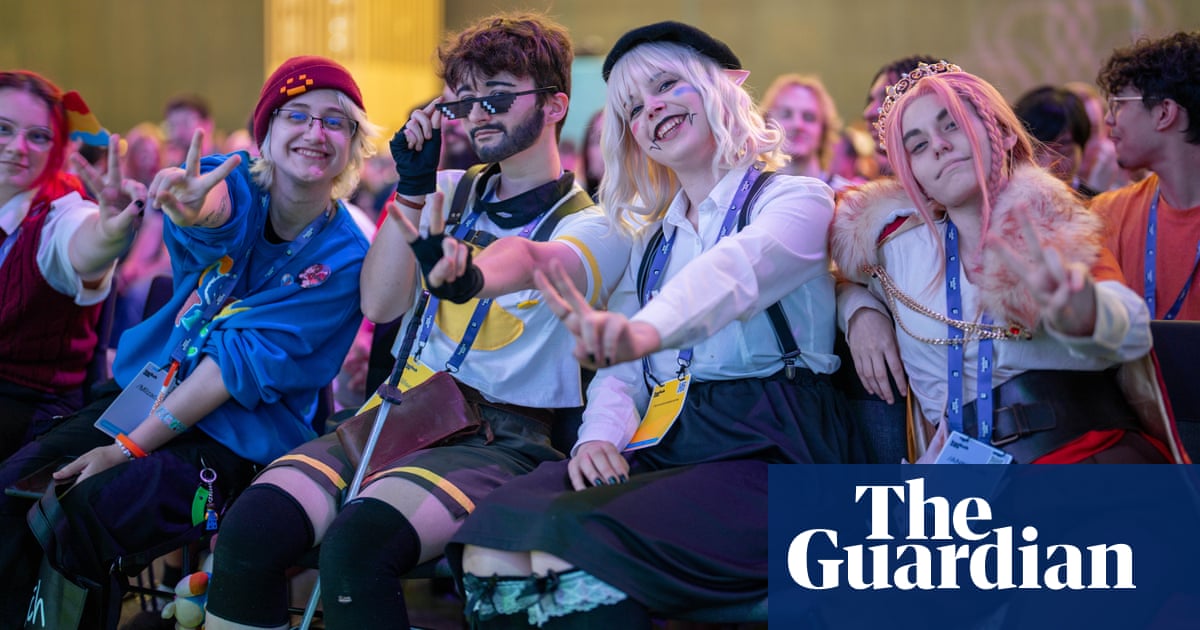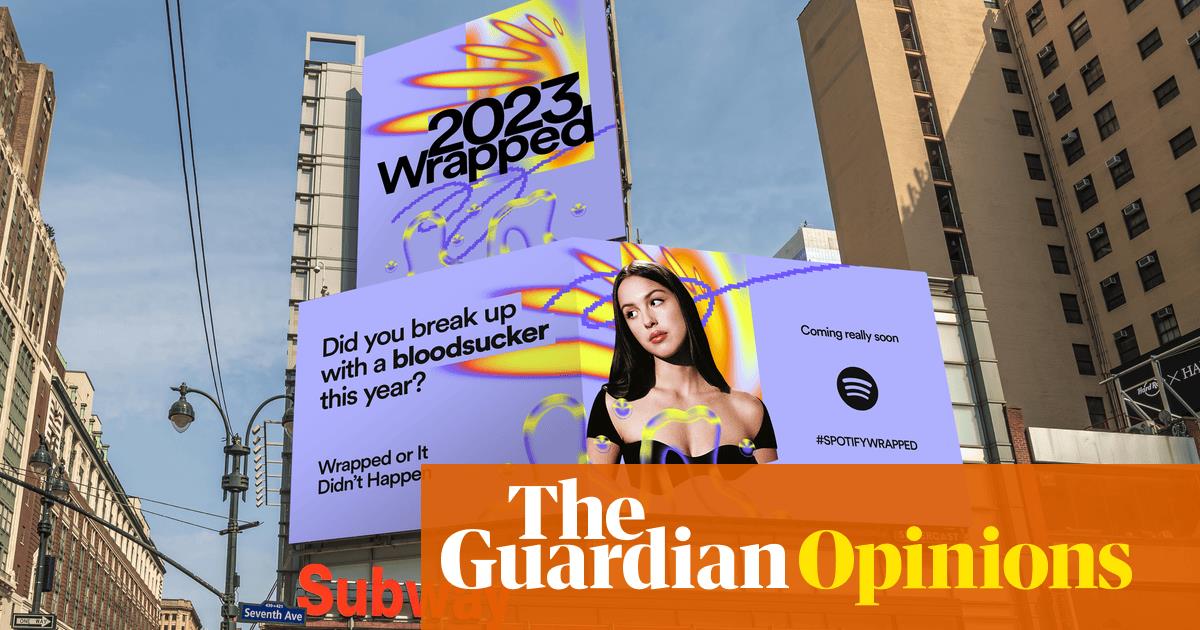
Just after last week’s edition of this newsletter went out, Spotify bought two small technology companies. Chartable and Podsights, both founded and headquartered in New York, are hardly household names: with around 50 employees between them, according to estimates from analysts Crunchbase, they’re the sort of acquisitions that large companies make on a regular basis, and often go unnoticed by anyone but industry watchers. But the purchases, both made for undisclosed sums, help explain why the company is so eager to stand firm in the face of criticism from the likes of Neil Young and Joni Mitchell over its broader podcasting strategy – and, specifically, its spending of an estimated $200m on acquiring exclusive rights to the Joe Rogan podcast.
First, the acquisitions themselves. The Verge’s Ashley Carman reports:
Both Podsights and Chartable allow podcasters and networks to include tags in their shows that are used to track who listened, if they heard an ad, and whether they took action upon hearing it. Spotify says it plans to use Podsights’ technology outside podcasting and will bring it to the “full scope of the Spotify platform, including audio ads within music, video ads, and display ads.” The Chartable acquisition appears to be more directed toward podcasters themselves rather than advertisers, particularly because of its technology like SmartLinks [which tracks where clicks to podcasts have come from].
“These tools will make it easier for publishers to turn audience insights into action and expand their listenership while ultimately growing their businesses,” Spotify writes.
In other words, both companies make tools that turn podcast advertising into something a bit more like web advertising. Podcast adverts are something of a cliche at this point: meal delivery kits, direct-to-consumer mattresses, and web hosting services abound. That’s not (just) because those companies are huge fans of supporting independent media, though. Instead, it’s because buying and running adverts on podcasts has historically been an expensive, analogue affair, that involves one-to-one relationships with a plethora of small publishers and creators, all to publish adverts with little-to-no ability to track anything beyond the absolute broadest metrics possible. That means the “customer acquisition cost” of podcast advertising is extraordinarily high, and so it has typically only paid off for those industries where it’s worth paying a lot of money for each new customer: ones with recurring revenue or big-ticket items.
From an advertiser’s point of view, there are inefficiencies throughout the system. Buying adverts is hard, because of the fragmented nature of podcast production; targeting audiences is hard, because of the lack of meaningful analytics available through the decentralised ecosystem; and tracking purchases is hard, because of the difficulty of linking a particular call to action to any individual response.
Enter Spotify. What the company is bringing to the table for advertisers is obvious enough. When you listen to a podcast on Spotify, you’re not just downloading an MP3 from a server and playing it on a generic app of your choice – you’re streaming straight from Spotify’s servers, with your listening linked directly to your account and all the commensurate profiling that brings with it. Spotify can sell ads on behalf of podcasters, target those ads in a far more granular way than most podcasting apps, and easily roll out technical features – “tap here to buy”, for instance – as advertisers see fit.
But the company faces a chicken-and-egg problem. Audiences won’t switch to listening to podcasts on Spotify without a hefty push, and podcasters won’t switch if the audiences aren’t there.
Which is why Spotify is willing to torch its relationships with some of the biggest names in music over Joe Rogan.
A lot of musicians accurately described the conflict as one of money, not morals, but missed where the money really lies. Yes, every time you listen to a song on Spotify, you cost the company money: it pays royalties per stream, and the perfect Spotify music fan is someone who pays every month and never opens the app. And yes, every time you listen to Joe Rogan on Spotify, you make the company money: the podcast still has adverts in it, earning payments based on audience size, but Spotify’s deal with the former MMA commentator is reportedly a flat-fee deal.
That trade-off is small-fry, though, compared to the long-term point of deals like Rogan’s, which is to turn the platform into the home of podcasts. By buying exclusives upfront, Spotify breaks the chicken-and-egg problem that hampers its efforts to turn podcast advertising from a profitable niche into a core tranche of the industry. The goal isn’t, as the New York Times puts it, to build Spotify into the Netflix of podcasts – it’s to build Spotify into the YouTube of podcasts.
And bizarrely, the company is building towards that goal almost unopposed. Apple, whose built-in Podcasts app is still the market leader, has all but abandoned the medium it effectively created. Its desultory launch of paid-for podcasts in late 2021 was notable more for temporarily breaking its own podcast store than it is for the small number of shows that have taken it up on the offer. Amazon is building an impressive roster of audio exclusives at Audible, but its end goal is more clearly a Netflix-style model. And the roster of indie apps and networks that make up the long-tail of the podcasting industry lack the resources and coordination to put up much of a fight.
There are exceptions. Spotify’s clear push for market dominance helps explain the BBC’s decision, earlier this month, to pull a number of its podcasts from public directories and make them available exclusively on the BBC Sounds app.
“The world of audio listening is constantly changing, and the global tech giants are more routinely publishing content exclusively on their platforms”, the BBC said in a statement. “We want to make sure people can easily find new things from the BBC and can’t rely on other platforms, who have their own exclusive content and a global catalogue to promote, to do this for us.”
The move was, and is, controversial. As former Guardian technology editor Charles Arthur put it, “you don’t need a special TV to watch BBC TV; you don’t need a special radio to listen to BBC radio”. And yet there is clearly a level of dominance at which it would be the right call: you don’t need a special TV to watch the BBC, but if the BBC ended up effectively exclusive to Sky through market concentration, something would have gone badly wrong.
Regardless of whether Spotify succeeds or fails in its efforts, the push feels like the beginning of the end for one of the last sections of the internet to exist independently of the major technology platforms. Just as the rise of social media usurped blogging, the success of YouTube centralised video creation, and, yes, the creation of Spotify itself upended the MP3-based era of online music fandom, podcasts in their current form feel on the edge of an existential change. It’s hard to see how Spotify’s efforts can be successfully fought except through others, like the BBC, retrenching to their own walled gardens, and while a world with twenty podcasting apps is probably better than a world with just one, it would be the end of an era.
The funny pages
From one industry on the cusp of platform assimilation to another in its final throes. This week, Amazon completed its eight-year-long integration of digital comics platform Comixology, which it acquired in the heady days of 2014.
By the time the acquisition was finalised, Comixology had already cemented its position as the market leader. A white-label app for Marvel Comics, launched alongside the iPad by Steve Jobs himself, had helped catapult it into the mainstream, and just three years later it boasted a selection that included all the major American publishers, and a wide and growing selection of European and Japanese comics as well.
Initially, Amazon seemed content to run Comixology at arms length. Its one prominent intervention was an early salvo in the wars over Apple’s App Store monopoly, when Amazon removed the ability to buy comics in-app in order to avoid the 30% fee charged by the store.
Now, though, that has changed. The “new” Comixology has launched, promising full integration with Amazon’s Kindle platform, and it has gone … poorly. The update removed the ability for international users to subscribe to titles (an important feature for a periodical medium), broke every historic link to store pages, cut royalty rates for self-publishers, deleted the ability to download copies of your purchased comics to read on other apps, broke the online comics reader, and replaced a store designed from the ground-up for comic books with a mildly edited version of the main Amazon website.
The shift feels existential for digital comics: if Amazon doesn’t fix the glaring oversights rapidly, then consumers will likely turn to piracy, taking the industry right back to the status quo of a decade ago. And yet, the turnover for the entire North American comics industry was just north of $1bn last year – barely a fifth of a per cent of Amazon’s revenue for the same period. For digital comics creators, the day Comixology was shut down could be the most consequential moment of their careers; for Amazon, it was just Thursday.












